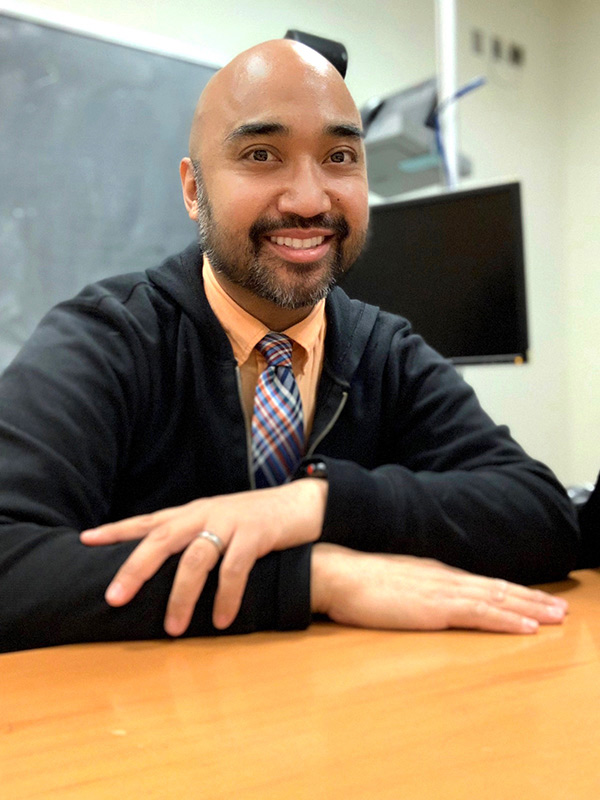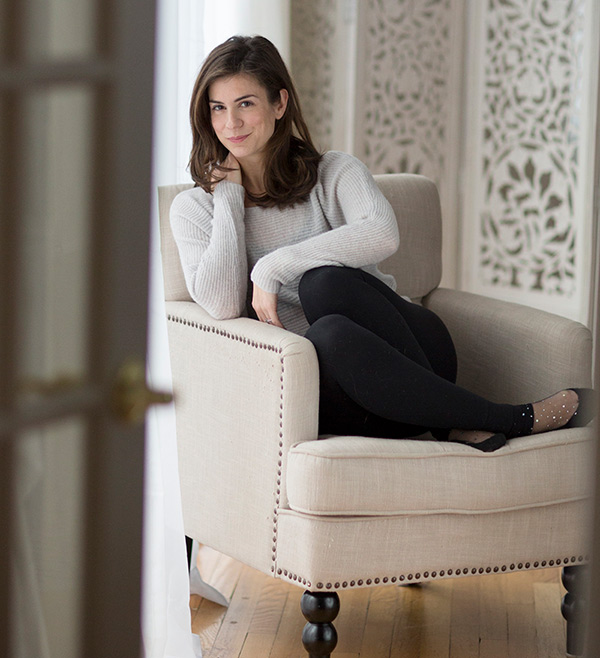Professors often view their students as important research partners.
Derald Wing Sue calls his “the inspiration, energy and engine” behind his work.
In the mid-2000s, “Sue’s Crew,” a group of his students, began coauthoring publications with Sue. Since then, core members of that group — Kevin Nadal, now a professor at John Jay College of Criminal Justice; Aisha Holder, now a psychologist at the Columbia University Counseling Center and also in private practice; Gina Torino, now an associate professor at SUNY Empire College; David Rivera, now an associate professor at CUNY Queens College; and Christina Capodilupo Schwefel, who teaches at TC while also operating a leading fitness company — have continued working with their mentor. In 2018, the team produced the book Microaggression Theory: Influence and Implications.

Kevin Nadal (Courtesy of Kevin Nadal)
Now Sue’s current TC students Sarah Alsaidi, Elizabeth Glaeser, Cassandra Calle, Narolyn Mendez and Michael Awad (completing an internship at Yale) are helping him flesh out the concept of microinterventions.
Both groups have drawn on their diverse racial and cultural knowledge to research people’s lived experiences of microaggressions and extend Sue’s work to issues of gender, sexual orientation and immigration status.
He could easily have written the first microaggressions paper on his own. But he wanted his students to be part of it.
—Kevin Nadal
“I’ve so appreciated Derald’s ability to encourage students to share their perspectives and voices,” says Nadal, author of Microaggressions and Traumatic Stress: Theory, Research, and Clinical Treatment and That's So Gay!: Microaggressions and the Lesbian, Gay, Bisexual, and Transgender Community. “He could easily have written the first microaggressions article on his own. But he wanted his students to be part of it — to bring our whole selves to the table, and collectively hash out the concept.”

Christina Capodilupo Schwefel ("Moments By Andrea")
Capodilupo credits Sue with “exposing to the field that it’s very dangerous to have one person’s perspective applied universally to all people.” From "Day One," she says, "the idea has been to form and develop theories by studying people’s lived experiences.”
In the early 2000’s, recruiting participants for an eating disorders study, Capodilupo was struck by how many were excluded by the “narrow criteria” for bulimia and anorexia of the Diagnostic and Statistical Manual of Mental Disorders.
“I subsequently studied how black women relate to their bodies and don’t necessarily prize thinness when talking about body shape — something required for an eating disorder diagnosis at the time in the DSM. Imagine you’re a young therapist with only one way of understanding eating disorders. If someone talks about the problem differently, you might miss it.”
Related: Weighing Our Words: Derald Wing Sue is challenging America to think about microaggressions